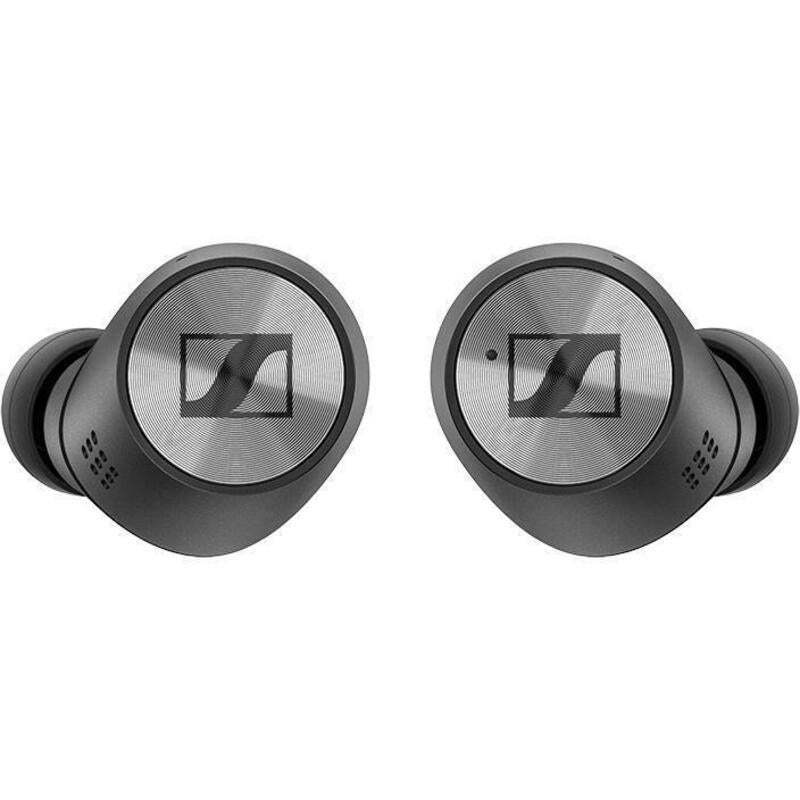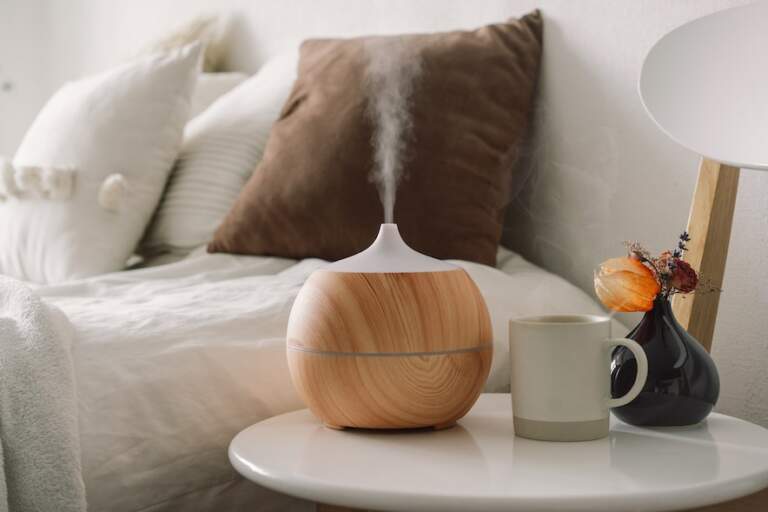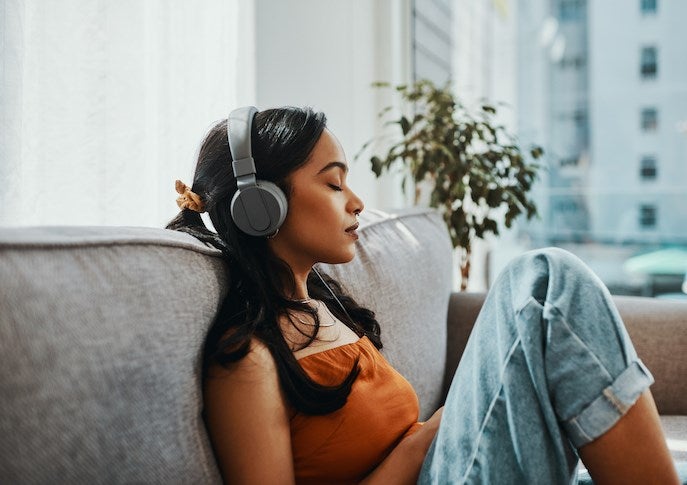
These days, headphones do so much more than just play our music. They can create the perfect environment for phone calls, provide that theatre sound to watch movies on the go, make loud, crowded environments quiet, keep us motivated as we run, and so much.
A good quality pair of headphones should mould easily to your lifestyle. If you travel a lot on and off trains, you should really invest in some small, lightweight headphones – whereas if you live-stream a lot, you might prefer a set of over-ear headphones with a fantastic microphone.
But with so many options, specifics, and details to ponder, finding the right headphones for you isn’t as easy as buying the trendiest option. It takes careful consideration and a proper understanding of the many choices. That’s where our buying guide comes in. We’ve gathered all the essential headphone information and features to help you find the right pair easily. Keep reading to discover what headphones you need.

What Kind of Headphones Should You Buy?
Headphones have developed wildly since their creation and there’s never been so many options to choose from, including over-ear, in-ear, on-ear, truly wireless and sport. Which headphones you choose will ultimately come down to your unique lifestyle. Below is a breakdown of each type’s best and worst qualities, to make your decision easier.
Over-Ear Headphones
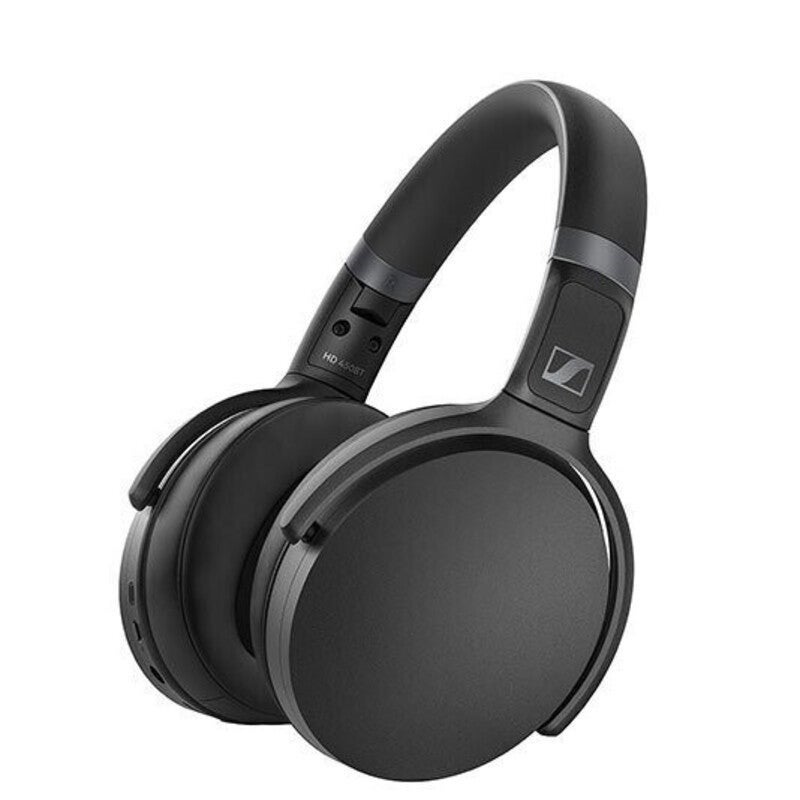
If you want the best sound quality, generally speaking, over-ear headphones are the best choice. They’re the original and biggest headphone type that fits snuggly over the ears for a fantastic sound experience.
Why You Should Buy Over-Ear Headphones
Over-ear headphones are basically like earmuffs that pick up on all the instruments and vocals in your music for a superior, soundscape listening experience. They’re practical, have a high-frequency sound quality and offer better comfort than in-ear or over-ear headphones.
Over-ear headphones also have amazing wireless features. Their bigger design usually means wireless over-ear headphones have the longest battery life of all wireless devices, so you can worry less about them running out of charge. They also most commonly come with noise-cancelling capabilities for an uninterrupted listening experience – ideal for trains, busy streets, or a noisy office space.
They’re the most fantastic choice for gamers or home setups.
Why You May Not Like Over-Ear Headphones
Whilst over-ear headphones are an excellent investment, they come with their flaws. One of the major problems is their size. Over-ear headphones have a large design that’s bulkier than the rest. So, if you’re travelling regularly, you might find they’re not a practical choice, especially when it comes to storing.
The design of over-ear headphones also means they don’t stay in place well when exercising, especially when you’re jumping and moving around a lot. So, if you’re looking for headphones suitable for sport, you might want to avoid these.
Because of their over-ear design that creates a snug environment for sound, over-ear headphones can also get hot and sweaty after extended periods.
On-Ear Headphones
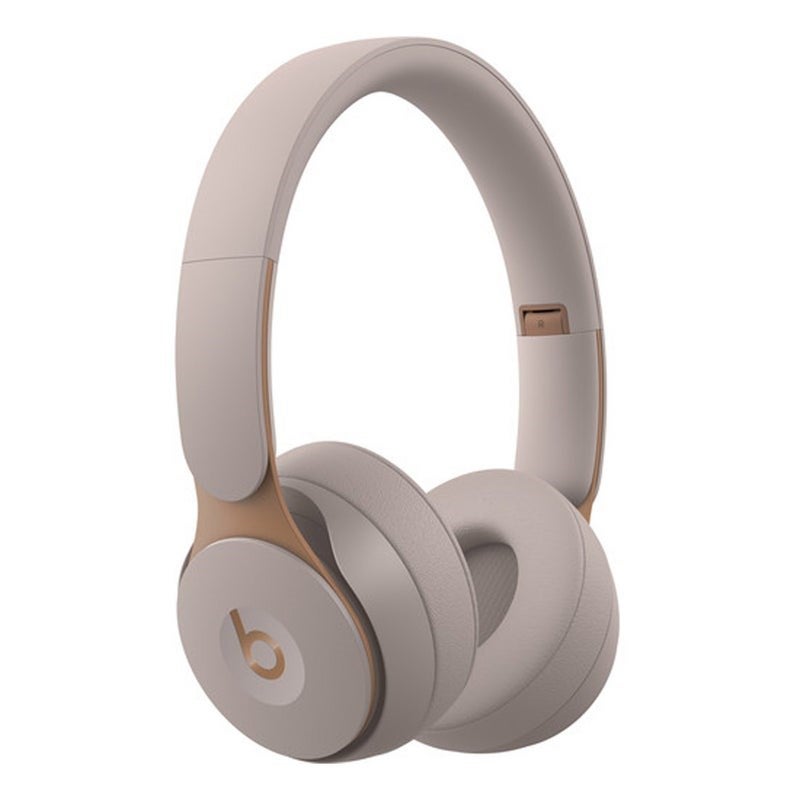
As the name suggests, on-ear headphones sit on the ear itself and are an extremely popular, practical, all-around choice.
Why You Should Buy On-Ear Headphones
If you want a pair of headphones that offer quality sound but are also compact in design, then on-ear headphones are for you. They’re smaller than over-ear headphones, more transport friendly and generally collapsible.
Because they sit directly on the ear, they allow you to enjoy your music while still being able to hear the noises of the environment around you. They also offer better airflow to prevent sweating around your ear.
On-ear headphones generally come with an attachable cable so you can plug them directly into your device for better sound quality or if your wireless battery runs out.
Why You Might Not Like On-Ear Headphones
Because on-ear headphones sit directly on the ear, it means they’re not truly noise-cancelling, even if they say so. If you’re looking to immerse yourself in your music fully, on-ear headphones might not be the choice for you.
Whilst on-eat headphones are smaller than over-ear headphones, they are still big in size, so they’re not as portable as in-ear headphones. They can also cause discomfort after long periods because of how they sit on your ears.
In-Ear Headphones/Earbuds
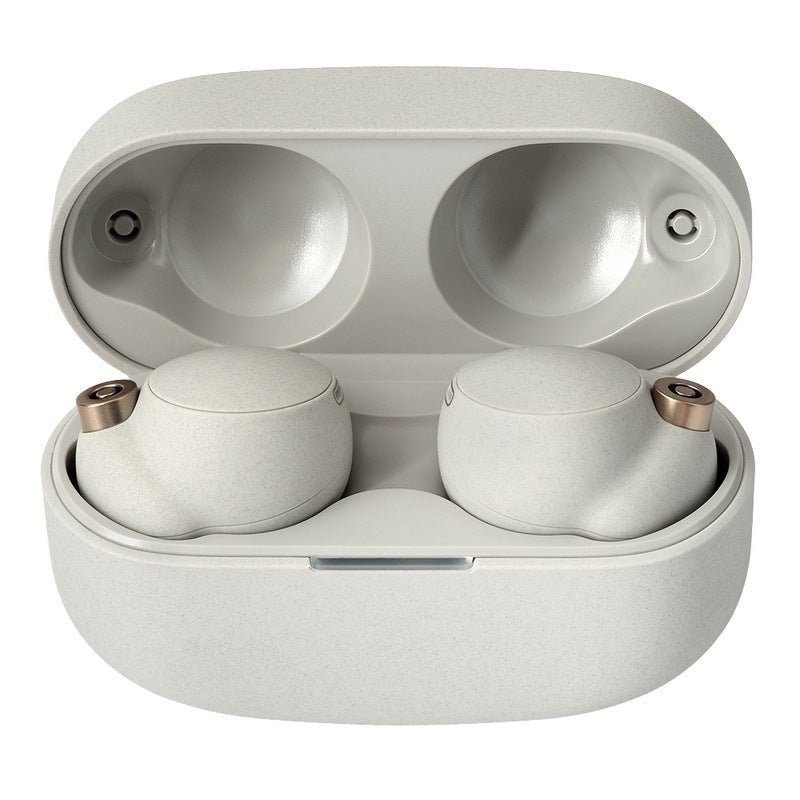
Fitted directly into the ear; earbuds deliver sounds straight down the drum for a fully immersive sound experience.
Why you Should Buy In-Ear Headphones/ Earbuds
If you’re looking for the most affordable and practical headphones, then in-ear are the right selection for you. They’re the headphone choice most smartphones come with and are available in wired and wireless designs.
In-ear headphones seal and mould to your eardrums to prevent outside noise and send sound waves directly into the eardrum. They’re affordable, easy to use and very portable. They’re also extremely small in design, making them the perfect choice for commuters.
Why You Might Not Like In-Ear Headphones
Because earbuds have a smaller, more compact design, they don’t come with all the features that over-ear headphones do. With a much smaller battery, they generally have a smaller life cycle. They also lack superior base quality and don’t offer the best audio frequency.
Truly Wireless Headphones
Truly wireless headphones are exactly what the name suggests, completely wire and cable-free headphones. Instead of using cables to control the device, they use touch controls to create a practical and awesome listening environment. They’re also generally noise-cancelling and very technically savvy.
If you’re looking for headphones for daily office hours or on public transport, truly wireless are the model for you.
Sport Headphones
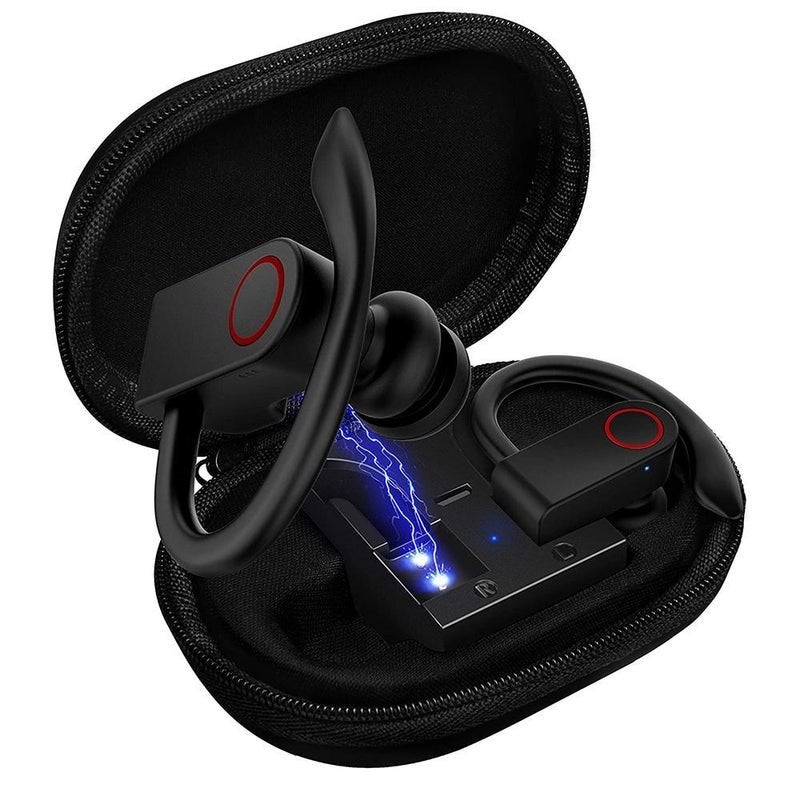
Designed specifically for sport and exercise, sport headphones stay in place when you’re running or jumping around, so whether you’re doing a workout or skipping, you can worry more about your body than your headphones falling out. Unlike over-ear headphones, they allow air to flow and prevent sweating around the ears. They also offer fantastic sound quality to keep you motivated throughout your run. Plus, many models are water-resistant and incredibly durable.

Why You Should Buy Noise-Cancelling Headphones
Noise-cancelling is a great feature to consider when buying headphones, especially if you want to use them on public transport or in busy, loud spaces. Noise-cancelling headphones do exactly what the name suggests; cancel out the background noise and allow you to stay focused while immersed in your music. They’re not a necessary feature, but they’re definitely a worthwhile one.
Wireless Headphones vs Wired Headphones
The decision whether or not to buy headphones wired or wireless is entirely up to your personal preferences, but both have their pros and cons.
Wired headphones can tangle easily, but they’re way more affordable and have better controls. However, wireless headphones mean no knotted cords, ever.
They’re both easy to store and generally easy to use, yet wireless require charging and only work for Bluetooth devices. Wired headphones offer a clear connection without dropouts, and they don’t need to be charged.
If you hate untangling your headphones daily, then wireless headphones are for you. However, if you want easy control of your headphones without the hassle of charging, you might be better off with wired headphones.
Tip: Many over the ear, wireless headphones come with cables attached, so you can still use them if they ever run out of battery.
Open vs Closed-Back Headphones
If you’ve been browsing around for different over-ear or on-ear headphones, you’ve probably come across the terms open and closed back – which simply relate to the airflow your headphones receive.
Open-back headphones allow air to flow through their system to improve clarity and reduce overheating. However, they’re generally less noise cancelling and better for home use.
On the other hand, closed-back headphones have an enclosed back that offers more intense sound and superior noise-cancelling abilities.

Other Features You Should Consider Before You Buy Headphones
Compatibility
An essential feature you need to consider before buying new headphones is compatibility with your device. You should check if your device is Bluetooth or cable accessible to ensure you don’t buy the wrong type.
Software Updates
Like smartphones, many in-ear headphones come with a headphone app that not only allows you to store information but provide software updates to ensure the headphones are always performing at their best and extend their life.
Remote Controls
Different headphones come with alternate control systems to pause, skip, control volume and answer calls. Some have built-in buttons to the headphone themselves; others are on the wires. You should consider what system you’d prefer before you buy.
Microphone
If you’re planning on using your headphones to make calls regularly or to stream and record yourself, you should definitely consider the microphone that comes with your dream headphones and ensure they work to your needs.
Replacement Parts
Extra and spare parts can help when a problem or breakage occurs. If you’re buying in-ear headphones, you’ll definitely need some replacement silicone earbuds in case yours break.
If your headphones come with a wired attachment, you might need an extra wire if you lose yours. For over-ear headphones, you might want to consider buying some spare ear cushions in case the originals tear or rip.
Frequency Range
If you’ve shopped around, analysing different headphones and their features, then you’ve probably seen numbers attached to a Hz. This tells you the range of sound your chosen headphones can produce. For the best sound experience, headphones with a 20Hz – 20,000Hz are the best.
Battery life
If you’re buying wireless headphones, it’s crucial to consider the battery life and ensure it matches your needs. These days most wireless headphones can last at least 8 hours, so if you’re using yours on the train to and from work, they should be fine. However, if you’re using them all day and night, you might want to invest in ones with extra-long battery life, a rechargeable case or instead opt for wired headphones.
A Protective Case
A case for your headphones is absolutely vital whether they’re wired or not. Headphones are an expensive investment that can last for years to come with the proper care and a case can assist here. They protect and keep the headphones safe when not in use. A hard case is best, though, as it will prevent any potential damage or breakage.
Where can you buy headphones?
If you’re on the market for a quality pair of headphones but don’t want the hefty price tag that comes with them, then you should check out MyDeal. We have a wide range of quality headphones available online at affordable and discounted prices.
Whether you’re looking for wired, wireless, sport, over-ear, or kid’s headphones, you’ll be able to find quality options for less within our range. Plus, we even offer free shipping on selected headphones. Browse the range today and save.



